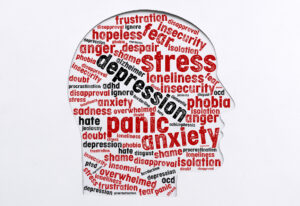Support Groups for Families of People Who Die in Jails

Support Groups for Families of People Who Die in Jails: A Guide to Resources Across the U.S. and Online
Losing a loved one in jail is a tragic and overwhelming experience. Families often face grief, unanswered questions, and legal and emotional struggles. Many are left to navigate a confusing system on their own. Fortunately, support groups exist to help families cope with loss, find resources, and connect with others who have experienced similar tragedies. This article explores various support groups across the continental United States and online that can provide comfort, guidance, and advocacy for families of those who die in custody.
National and Regional Support Organizations
1. National Police Accountability Project (NPAP)
- Website: www.nlg-npap.org
- Overview: NPAP, a project of the National Lawyers Guild, provides resources for families affected by police and jail deaths. While primarily focused on legal advocacy, NPAP helps families connect with attorneys and activists working to hold jails accountable.
2. Alliance for Safety and Justice (ASJ)
- Website: www.safeandjust.org
- Overview: ASJ focuses on criminal justice reform and supports crime survivors, including families of those who die in custody. They provide advocacy training, healing circles, and online resources.
3. Families United for Justice (FUJ)
- Website: www.familiesunited4justice.org
- Overview: A national collective of families impacted by police violence and jail deaths. FUJ offers support, advocacy training, and opportunities for families to share their stories and fight for systemic change.
4. The Marshall Project – Justice Organizations List
- Website: www.themarshallproject.org
- Overview: This resource compiles a list of advocacy and support groups for families seeking justice after a loved one dies in custody.
State and Local Support Groups
California
California Families United 4 Justice (CFUJ)
- Website: www.cafamiliesunited4justice.com
- Overview: A support group specifically for families in California who have lost loved ones in police and jail custody. They provide emotional support, legal guidance, and advocacy training.
Texas
Texas Civil Rights Project (TCRP) – Justice for Families Initiative
- Website: www.texascivilrightsproject.org
- Overview: TCRP offers legal assistance and advocacy support for families of individuals who have died in Texas jails and prisons.
Texas Jail Project
- Website: www.texasjailproject.org
New York
VOCAL-NY (Voices of Community Activists & Leaders)
- Website: www.vocal-ny.org
- Overview: VOCAL-NY provides direct support to families affected by incarceration-related deaths, including emotional support groups and advocacy training.
Illinois
Chicago Community Bond Fund – Families Impacted by Incarceration
- Website: www.chicagobondfund.org
- Overview: This organization supports families in Illinois dealing with the impact of jail deaths, particularly those caused by medical neglect or excessive force.
Florida
Florida Justice Center – Support for Families
- Website: www.floridajc.org
- Overview: Provides emotional and legal support for families of those who have died in Florida jails, including guidance on wrongful death claims.
Online Support Groups and Forums
1. Facebook Groups for Grieving Families
- Families Impacted by Police & Jail Deaths (Private Group) – A space for families to share their stories and find support.
- Mothers of the Movement – A group of mothers whose children have died in custody or due to police violence.
- Survivors of Custodial Deaths – An online community for sharing experiences and resources.
2. Grief Healing Discussion Groups
- Website: www.griefhealing.com
- Overview: Provides moderated forums where people grieving a loss can share their experiences and receive support from others in similar situations.
3. Change.org – Advocacy and Petition Support
- Website: www.change.org
- Overview: While not a traditional support group, Change.org hosts numerous petitions started by families seeking justice for loved ones who died in custody. Connecting with others through these petitions can provide solidarity and advocacy opportunities.
4. National Alliance on Mental Illness (NAMI) Family Support Groups
- Website: www.nami.org
- Overview: NAMI offers online and in-person support groups for families dealing with mental health-related deaths in jails and prisons.
Why Support Groups Matter
Support groups can be essential for families coping with a jail-related death. They provide:
- Emotional Support: Connecting with others who have faced similar tragedies can be comforting.
- Legal Guidance: Many groups offer resources to help families navigate legal claims and investigations.
- Advocacy Training: Families can learn how to push for policy changes and justice for their loved ones.
- Practical Resources: Some groups provide financial assistance, crisis counseling, and guidance on obtaining records or legal representation.
How to Find the Right Support Group
When looking for a support group, consider:
- Focus Area: Some groups specialize in advocacy, while others focus on emotional healing.
- Size and Structure: Large national organizations may offer more resources, while smaller local groups may provide more personalized support.
- Online vs. In-Person: Choose what works best for your comfort level and accessibility.
Conclusion
Losing a loved one in jail is an unimaginable hardship, but families do not have to go through it alone. Whether seeking emotional healing, justice, or both, numerous support groups across the U.S. and online provide essential resources and community connections. Finding the right group can help families navigate grief, advocate for change, and ensure their loved one’s story is heard.

